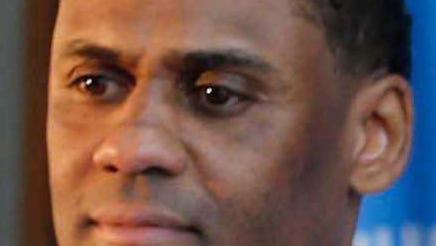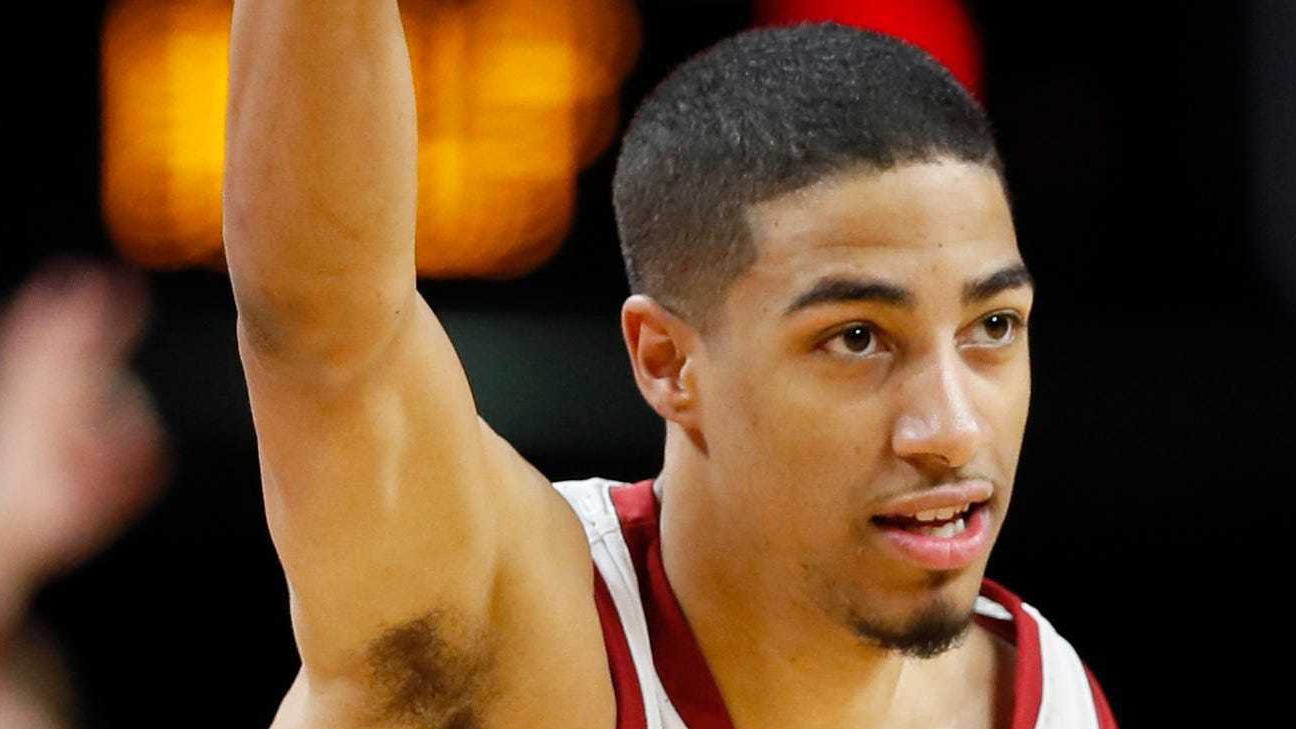Troy Weaver’s first big performance as an NBA general manager is only a week away. But after more than a decade as an understudy for this role in Oklahoma City, the Pistons’ new leading man sure doesn’t sound like someone still rehearsing his lines.
“No, I don’t feel any different,” Weaver insisted last week, as the Pistons wrapped up preparations for the chaos that lies just ahead, with next Wednesday’s draft followed almost immediately by the start of free agency.
The way Weaver sees it, this Detroit production really doesn’t require any different stage direction, either.
“Do your work, be diligent, be confident, let it rip,” he said.

And if you’ll allow him to switch sports with his metaphors, here’s how Weaver views the added responsibility he feels, moving from the assistant GM’s job he held for a dozen years with the Thunder to the title he accepted in Detroit five months ago.
“It’s like batting third or batting fourth,” Weaver shrugged. “You better hit the ball.”
Make contact
That doesn’t mean Wednesday’s first swing needs to be a home run. But the Pistons’ GM knows it’s a hugely important at-bat as this franchise tries again to start a rally here. And that’s where Weaver’s area of expertise — his eye for talent — should give them an edge, with a lottery ticket in one hand and a roster full of needs in the other.
It’s also where his history with the Thunder should give us a clue as to what he might be thinking as he eyes the Pistons’ draft board next week.
Yes, this team needs to find its future point guard one of these days. And by Weaver’s own estimation, there probably will be five or six that go in the first 20 picks of this year’s draft, starting with LaMelo Ball. Iowa State’s Tyrese Haliburton and Killian Hayes, the U.S.-born European prospect, probably are next on that list, though the former could be off the board by the time the Pistons are on the clock with the No. 7 overall selection. (Aside from his varied skill set, Haliburton’s the sort of high-character player and personality every GM can fall in love with as a prospect.)

But if you ask yourself how many surefire young NBA starters Detroit has right now, you’ll probably come to the same conclusion Weaver reached even before he took the job. As he put it back in August, “We’re not in a position to just pick a position.”
Instead, they’re in a position where they just have to take the best player available, which in Weaver’s view might very well be a guy like Florida State’s Patrick Williams. The 6-foot-8, 225-pound wing certainly fits the profile that Oklahoma City targeted in the draft, given his length and athleticism, his defensive versatility and his motor. He’s also the youngest North American player in the draft, which only adds to the perceived potential.
Multiple reports say the Pistons may have even made a promise to Williams that he won’t fall past them in the lottery, something the Thunder had a history of doing during Weaver’s time there — albeit with picks later in the first round.
But the point here isn’t necessarily that Williams has to be the choice, or even that he should be. (To me, it’s Haliburton, if he’s available.) It’s just that this needs to be the way the Pistons are thinking — upside-first — especially after last winter’s injury-fueled tank job was cut short by the pandemic, robbing them of some extra ping-pong balls. Then came the draft lottery, where the Pistons were dealt another blow, leapfrogged by Charlotte (No. 3) and Chicago (No. 4) and left with the No. 7 pick.
At the time, Weaver noted the biblical significance of that number — a symbol of completeness — and added, “Hopefully the seventh pick will bring us good fortune as well.”
But about the only thing everyone in the NBA can agree on with this draft class is that there are no complete players in it. Even at the very top, which is partly why the teams picking at Nos. 1 and 2 — Minnesota and Golden State — both would love to trade down.

Ball, Anthony Edwards and James Wiseman seem like the consensus top three in this class, but after that it’s a bit of a crapshoot. And not simply because NBA teams didn’t get a chance to fully evaluate prospects without a college postseason or the league’s annual pre-draft camp.
“I think the uncertainty is due to the guys at the top of the draft, with them being so young,” Weaver said. “You’ve got guys that haven’t played that many games, guys who played overseas. A lot of that is the uncertainty, more so than the lack of information.”
An open mind
There’s less intel about what other teams are thinking, too, Weaver admitted last week. Maybe there’s not much appetite on the Pistons’ part for trading up. But if there’s a chance to move down, Weaver sounds ready to jump on it, whether it’s with an upwardly mobile team like Boston or Orlando or even Washington sitting at No. 9.
“We’re definitely looking at everything,” Weaver said. “We’re in a situation here where we’re trying to get the best players, replenish the cupboard. Everything’s on the table. So absolutely we would entertain that sort of scenario.”
The same is true with what is arguably the Pistons’ most valuable asset at the moment: Salary-cap space. Detroit is one of only a few teams — Atlanta and New York are the others — with an estimated $30 million-plus available heading into free agency next week.
But while they could decide to spend it — they may have to overpay on a new deal for Christian Wood — they sound more inclined to use that space wisely, for a change. Shopping for bargains in a depressed market, or possibly taking on another team’s bad contract in exchange for future draft picks or young players, much like Steve Yzerman has done with the Red Wings.
“Teams haven’t been as desperate as people may think,” Weaver said, “but we’re definitely trying to leverage those opportunities where we can to try to add assets or players.”
Hold the applause for now, but a week before the curtain goes up on Weaver’s opening act, the early reviews sound promising, at least.
jniyo@detroitnews.com
Twitter: @JohnNiyo